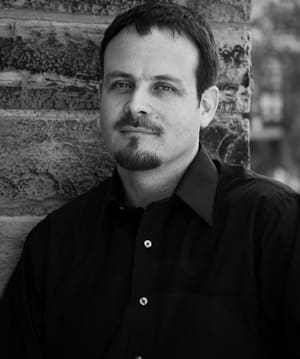“It has often happened to me, at book fairs or in bookstores, that a gentleman approaches me and asks for my signature,” writes Peruvian author Mario Vargas Llosa (The New Republic, May 14, 2001). “‘It is for my wife, my young daughter, or my mother’, he explains. ‘She is a great reader and loves literature’. Immediately I ask: ‘And what about you? Don’t you like to read’? The answer is almost always the same: ‘Of course I like to read, but I am a very busy person’.”
Vargas Llosa comments that “a society in which literature has been relegated . . . to the margins of social and personal life . . . is a society condemned to become spiritually barbaric, and even to jeopardize its freedom.”
“If we wish to avoid the impoverishment of our imagination . . . and the weakening of our freedom, then we must act. More precisely, we must read.”
Wake me out of a dead sleep at three o’clock in the morning, any morning, and ask me to name my favourite company in the whole world, and without hesitation I’ll blurt out, “AES.” Ever since Steven Garber of the American Studies Program in Washington, DC, alerted me to the existence of this company, I have been tracking its activities with fascination.
I’ve written about the AES Corporation in Comment before (see “The Good Company” in Comment, Winter 2000). Recently reading their annual report for the year 2000, titled “A Passion to Serve,” confirmed my high opinion of this global power company.
“The year seemed magical,” writes the president and CEO of AES, Dennis Bakke, in his annual letter. “We added 39 new businesses that will raise the number of people served by AES worldwide to 120 million. . . . Last year we joined the S&P 100, a list of the 100 most significant companies in the U.S. . . . Revenue doubled to almost $7 billion [U.S.] and assets grew 48% to $31 billion. Earnings were up 52% to $1.46 per share.”,/p>
AES is evidently a businessperson’s business. The bottom line really matters to them. Bakke lists among the company’s commitments for the year 2001—which will be its 20th year in business—the objective of becoming “the sixth American company in history and the first non-technology company to earn a billion dollars in a single year by its 20th birthday.”
But, as Dennis Bakke explained on another occasion, the bottom line is not the purpose of AES Corporation’s existence. “Profits . . . are not any corporation’s main goal. Profits are to a corporation much like breathing is to life. Breathing is not the goal of life, but without breath, life ends. Similarly, without turning a profit, a corporation, too, will cease to exist.”
It is interesting to note how Bakke views the social responsibility of AES. In a hundred different ways, AES spent more than $20 million (U.S.) on charity in 2000. “Social responsibility at AES does include these charitable acts,” writes Bakke, “but they play only a small role in fulfilling our total responsibility to society. Our mission to serve the world with safe, clean, reliable, and reasonably priced electricity overwhelms in importance the wonderful charitable acts we undertake each year. Serving the world with electricity and other services is our ultimate responsibility.”
“From this point of view,” Bakke continues,
it will not surprise you that my choice for the most socially responsible action AES accomplished this year was in fulfilling our mission to deliver safe electricity in the Dominican Republic. The year before AES acquired the Dominican Republic distribution company, 385 public citizens died in electricity-related accidents within our utility service area. In 2000 that number was reduced to 29. It is likely 300 people are living today in the Dominican Republic because AES took seriously its primary mission. I can think of no other “project” AES has undertaken that is as socially beneficial as saving the lives of more than 300 people.
When faced with a company like AES, there is little I can add to the words of one of its own businesspeople in Hungary, who wrote, “Keep living the [AES] principles and values even if no one else goes along with them or acknowledges your good work. We are trying to live this way, not because it will make us popular or successful or get others to go along with us or even like us. We are trying to live this way because it is the way we think life in business ought to be lived.”

